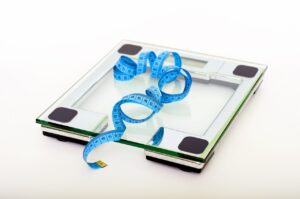Ogie Shaw,
(who’s seriously awesome Ted Talk you can see here) states “You Should
never make a change to your diet that you don’t intend to make permanent.”
And decades of studying human behavior have not led him wrong: He is one of the renowned Fitness Accountability Experts in the country. Case in point: I think it’s safe to say, maybe we should consider his advice? (Just sayin.)

In recent years, we’ve seen the general gravitation toward the word “lifestyle” vs “diet”. “ (For example, “I live a Paleo lifestyle” vs. “I am on a Paleo ‘diet’.”This is all good and fine, but is it really helping if we aren’t actually paying attention to the ideas behind the changes?
Change….is just that! Change!
When we say “It is time to ‘change’ my clothes” does that mean “I take off my pants and put on a skirt for a couple of hours and then put the pants back on??”
No. Not typically!
Typically, we remove our clothes, discard them into the dirty clothes bin, don our new apparel, and move on with what’s next.
And this is where you come in. This is you! You are the “what’s next”.
When we begin a “diet” without any real consideration to the lifestyle change it will require to sustain it, aren’t we almost immediately setting ourselves up for failure?
Yes. We are.
Are you setting yourself up for failure?

Great examples of this are stories of people who “lose 55 lbs eating low carb but then gain it back as soon as they start eating carbs again” or “that super fit Mom who lost 85 lbs and got shredded and then gained it all back (and then some!) as soon as she stopped spending 3.5 hours at the gym”.
The point? Simple.
Any lifestyle change will win or fail on your framework for success.
In other words: If you don’t have a plan for how you are going to make your change permanent, you probably aren’t planning to make a change at all; just more of a short vacation.
There are two ways to change how you eat. One, is to build a framework of success in your life and then plug your diet into it.
The other is to randomly pull these changes from your left field and hope you can sustain them long enough to get your results (and deal with the ramifications of sustaining them later).
I think we all know which one is more likely to succeed long term.
So, if we know we need a framework for change, where do we start?
Keep your solutions simple and powerful
Some of the best tools for this can be found in Tim Ferriss’ book The 4 Hour Body: An Uncommon Guide to Rapid Fat Loss, Incredible Sex, and Becoming Super Human, (a copy of which, can be found here) and the brains behind some of the best Fitness and Accountability standards out there.
Tim has 5 simple suggestions for success:
1. Get an Accountability Buddy
An Accountability Buddy? Really?
Yes. Really.
Epic weight loss and wellness programs such as Weight Watchers have been employing this idea for years, and for good reason! It works.
According to the American Society of Training and Development’s study on Accountability, when you employ it, you have a 65% chance of reaching your goal. And when you commit to a specific person, you have a 95% chance of success.
Need I say more?
Find a Buddy, and watch your results roll in.
2. Create an Incentive
Several years of research accumulated in one simple fact for Tim Ferriss: You will work harder to keep something than to earn something.
Example?
You will work harder to keep $100 you already have than to earn $100 you’ve never had.
This can work in many ways, but the most simple example would be to promise something you already have (but can afford to lose! Lol! Please do not promise something you cannot actually afford to lose! )
If you were, for example, to approach your Mom and say “Mom, I’m going to lose 12lbs this month, and if I don’t, I owe you $50”. Well, that’s a little more in line with the psychology Tim proposes.
Bear in mind: There is nothing about this tactic that has to involve money. In fact, I would encourage you to find something beyond money. It should, however, be something motivating enough that if you were to have to part with it, you’d be sad. (Maybe a day without your cell phone?! LOL!)
Give it a try. It’s more motivating than you might think.
3. Know your facts
This is another facet of accountability: Know the (your!) facts from Day 1.
Have you ever failed to guess your weight gain? Maybe you thought you only gained 5 lbs over the holidays only to get on the scale to discover you actually gained 15lbs?
How about going the other direction?
After 3 months of Keto and Intermittent Fasting people were starting to comment on my weight loss.
Comments I totally disregarded.
My clothes were fitting a *little* better (maybe).
3-5 lbs better (maybe). But certainly nothing substantial.
Luckily, when I decided to embark on my lifestyle change in January, I recalled Tim’s advice and quickly weighed myself. (Ideally, Tim would like you to take note of ALL your measurements and record them, but if nothing else: at least weigh yourself!)

Thank God I did. Because three months later when finally, I broke down and decided to step on the scale I was down 18lbs. 18lbs!!!!!
You might ask yourself “How on earth could you not know you lost 18lbs?” (That’s what I was asking!) But the honest truth is that I didn’t. I completely underestimated my success, just as I had underestimated my 15lb GAIN right before New Years.
4.Log Your Food
(Pro Tip! Take Photos of it and text it to your Accountability Buddy!)
Another genius tip from Tim Ferriss.
The psychology behind logging your food has been substantiated for years (definitely do this!) Apps like MyFitnessPal and Weight Watchers have been helping us stay on track and measure our progress for years,
But what if you took it to the next level?
What if before you caved and took a bite of that scrumptious candy bar you FIRST had to take a picture of it and send it to your Accountability Buddy?
Your Buddy who just sent you a picture of the uber healthy Grilled Chicken and Spinach Salad THEY just had for lunch?
Will you still feel the same about eating that candy bar?
Probably not.
And in this day and age, sharing photos of your food (and hearing your Accountability Buddy’s reaction!) has never been more simple, thanks to technology.
Bonus: At the end of the day, you have a very satisfying visual diary of exactly what you ate that day.
Like I said: Genius.
PRO TIP: Your Accountability Buddy can also be Accountability BUDDIES. Try creating a small weight loss GROUP in place of just one person.

5. Write down your goals
Last, but certainly far from least, if you want to accomplish your goals (frankly: ANY goals) you need to write them down.
Period.
Goals that are written down (and even better: periodically evaluated and re-affirmed) have a 42% higher chance of being achieved than those that are not.
Want the perfect template for writing down your goals? Look no further. Our completely free VIP Happy-Hour Club has a beautiful one. Check it out HERE!
Cheers to Good Health!!
XoXo ~Lisa
*Health advice disclaimer: While I am a prior certified NSCA personal trainer, the thoughts, opinions, and advice I supply on this site are merely my personal opinions, and do not necessarily reflect the professional advice of Doctors, Nutritionists, or other certified Health Providers as they may pertain to you and your health needs. Please consult a Doctor or Certified Medical Professional before taking any action in your health or lifestyle changes. Your health may depend on it!!! For more information, you can visit our legal section here.*








